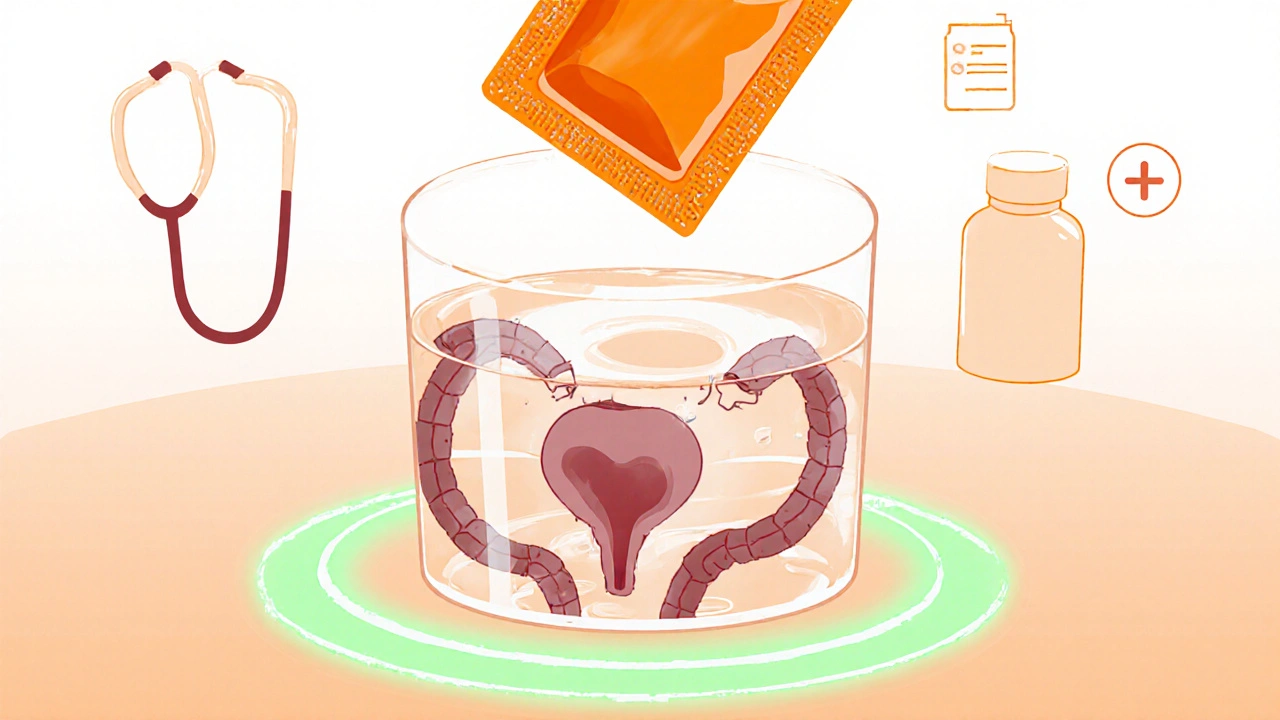Fosfomycin is a single-dose antibiotic that effectively treats uncomplicated UTIs with low resistance and minimal side effects. It's affordable, safe for most adults, and a smart alternative to overused antibiotics.
UTI Treatment: What Really Works and What Doesn’t
When you have a urinary tract infection, a common bacterial infection affecting the bladder, urethra, or kidneys. Also known as UTI, it causes burning, frequent urges to pee, and sometimes fever—especially if it spreads. About 60% of women will get one at some point, and they’re not just annoying—they can turn serious fast if ignored.
Most UTI treatment, relies on antibiotics that kill the bacteria causing the infection. Common ones include nitrofurantoin, trimethoprim-sulfamethoxazole, and fosfomycin. These usually clear symptoms in 1–3 days. But not all UTIs need antibiotics. Mild cases may resolve on their own, especially if you drink plenty of water and avoid irritants like caffeine. The key is knowing when to wait and when to act—delaying treatment too long risks kidney damage.
Cranberry, a natural remedy often used to prevent or ease UTI symptoms gets a lot of attention, but it doesn’t cure an active infection. Studies show it might help prevent repeat UTIs by stopping bacteria from sticking to the bladder wall. Same goes for probiotics—they don’t replace antibiotics, but they can help restore healthy bacteria after treatment. D-mannose, a sugar found in fruits, is another option some people try; early research suggests it may work like cranberry, but it’s not a substitute for medical care when symptoms are strong.
What you avoid matters just as much as what you take. Holding in urine, wiping backward, or using scented products can all make UTIs more likely. Tight clothing and dehydration also play a role. If you get UTIs often, you might need a longer-term plan—low-dose antibiotics, vaginal estrogen for postmenopausal women, or even testing for underlying issues like kidney stones or diabetes.
There’s a lot of noise out there about UTI treatment. Some swear by apple cider vinegar or garlic supplements. Others think hot baths fix everything. The truth? Only antibiotics reliably kill the bacteria. Everything else supports recovery or helps prevent future ones. That’s why the posts below focus on real, tested options—what works, what doesn’t, and how to avoid the traps that lead to recurring infections.
You’ll find clear comparisons of the most common antibiotics, how to tell if your UTI is getting worse, why some home remedies help more than others, and what to do if your infection won’t go away. No guesswork. No marketing hype. Just what you need to treat it right the first time.

